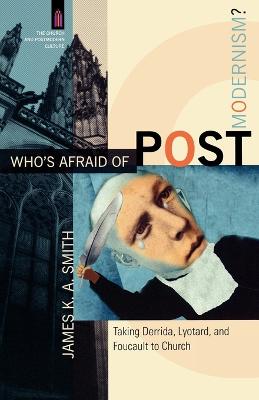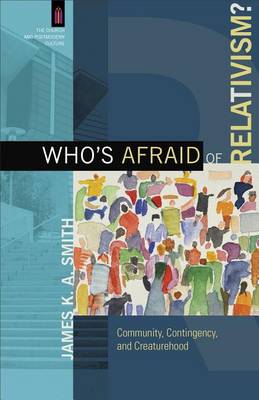The Church and Postmodern Culture
2 total works
The philosophies of French thinkers Derrida, Lyotard, and Foucault form the basis for postmodern thought and are seemingly at odds with the Christian faith. However, James K. A. Smith claims that their ideas have been misinterpreted and actually have a deep affinity with central Christian claims.
Each chapter opens with an illustration from a recent movie and concludes with a case study considering recent developments in the church that have attempted to respond to the postmodern condition, such as the "emerging church" movement. These case studies provide a concrete picture of how postmodern ideas can influence the way Christians think and worship.
This significant book, winner of a Christianity Today 2007 Book Award, avoids philosophical jargon and offers fuller explanation where needed. It is the first book in the Church and Postmodern Culture series, which provides practical applications for Christians engaged in ministry in a postmodern world.
Each chapter opens with an illustration from a recent movie and concludes with a case study considering recent developments in the church that have attempted to respond to the postmodern condition, such as the "emerging church" movement. These case studies provide a concrete picture of how postmodern ideas can influence the way Christians think and worship.
This significant book, winner of a Christianity Today 2007 Book Award, avoids philosophical jargon and offers fuller explanation where needed. It is the first book in the Church and Postmodern Culture series, which provides practical applications for Christians engaged in ministry in a postmodern world.
Following his successful Who's Afraid of Postmodernism? leading Christian philosopher James K. A. Smith introduces the philosophical sources behind postliberal theology. Offering a provocative analysis of relativism, Smith provides an introduction to the key voices of pragmatism: Ludwig Wittgenstein, Richard Rorty, and Robert Brandom.
Many Christians view relativism as the antithesis of absolute truth and take it to be the antithesis of the gospel. Smith argues that this reaction is a symptom of a deeper theological problem: an inability to honor the contingency and dependence of our creaturehood. Appreciating our created finitude as the condition under which we know (and were made to know) should compel us to appreciate the contingency of our knowledge without sliding into arbitrariness. Saying "It depends" is not the equivalent of saying "It's not true" or "I don't know." It is simply to recognize the conditions of our knowledge as finite, created, social beings. Pragmatism, says Smith, helps us recover a fundamental Christian appreciation of the contingency of creaturehood.
This addition to an acclaimed series engages key thinkers in modern philosophy with a view to ministry and addresses the challenge of relativism in a creative, original way.
Many Christians view relativism as the antithesis of absolute truth and take it to be the antithesis of the gospel. Smith argues that this reaction is a symptom of a deeper theological problem: an inability to honor the contingency and dependence of our creaturehood. Appreciating our created finitude as the condition under which we know (and were made to know) should compel us to appreciate the contingency of our knowledge without sliding into arbitrariness. Saying "It depends" is not the equivalent of saying "It's not true" or "I don't know." It is simply to recognize the conditions of our knowledge as finite, created, social beings. Pragmatism, says Smith, helps us recover a fundamental Christian appreciation of the contingency of creaturehood.
This addition to an acclaimed series engages key thinkers in modern philosophy with a view to ministry and addresses the challenge of relativism in a creative, original way.

